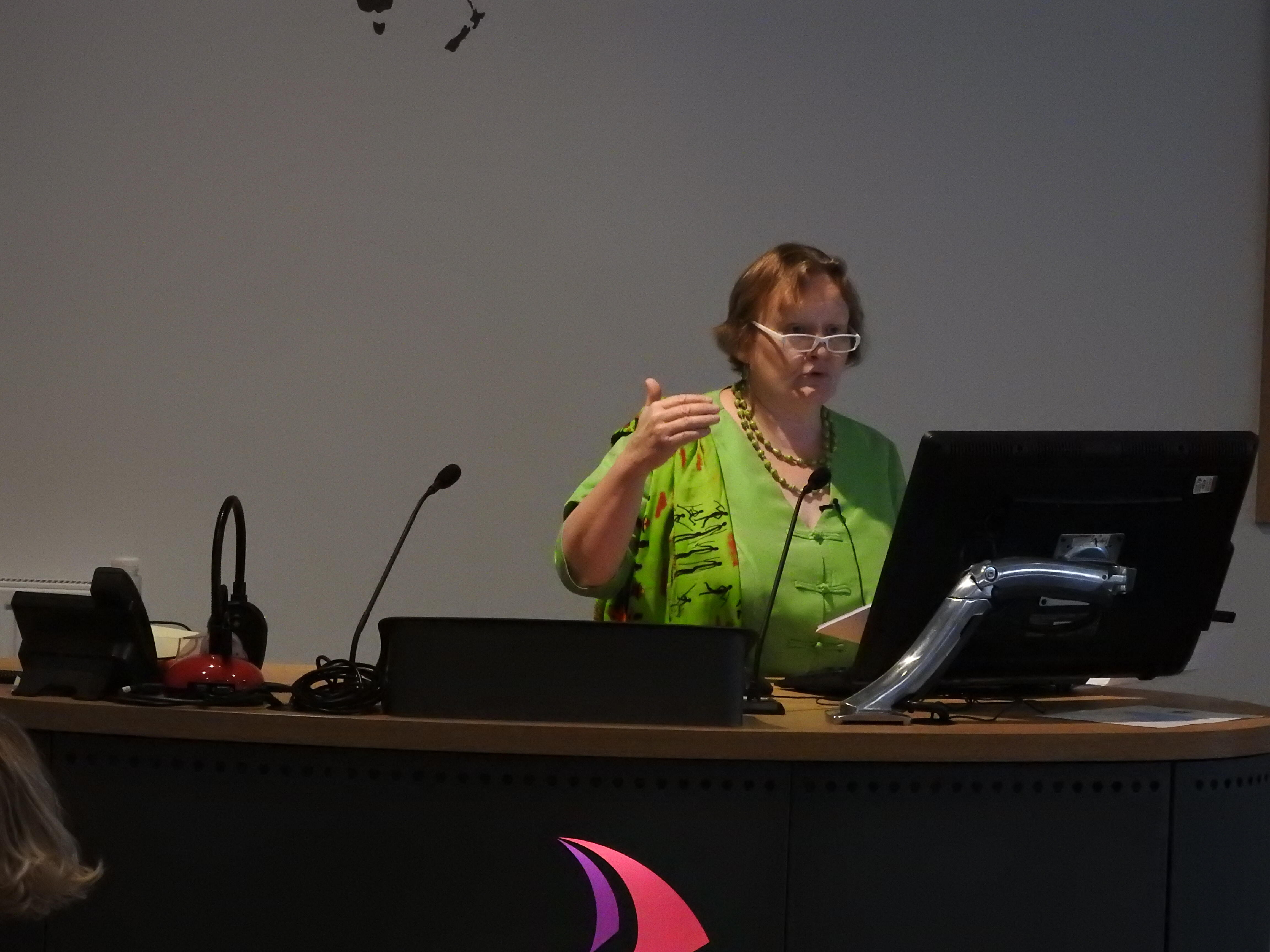
To celebrate International Day of the Midwife on 5th May 2017, LSTM’s Seminar Series this week was delivered by Midwife Joy Kemp, Global Professional Advisor with the Royal College of Midwives(RCM). Her talk entitled Midwives, mothers and families: partners for life! was introduced by Midwife Olivia Hill from LSTM’s Centre for Maternal and Newborn Health.
Joy began by providing key facts to underline the importance of investing in educated midwives, including the fact that 350,000 women die annually while pregnant or when giving birth, while up to two million newborn die within the first 24 hours of life and around 2.6 million babies are stillborn. Most of these deaths occur in low-income countries and many could be prevented with access to appropriate facilities and qualified health professionals. Emphasied with the quote from Joy: “There is no substitute for a midwife.”
The role of the midwife is unique and she went into detail about the concepts that define the role particularly the importance in terms of advocacy for women, enabling their voices to be heard. The value of these equally applicable locally as well as globally.
After looking at the definition of midwifery provided by ICM Joy highlighted the publication of the Lancet series on Midwifery 2014 which provided the evidence to challenge existing attitudes towards midwifery globally as well as solutions to safe childbirth in all countries. The Series provided a model for quality maternal and newborn care from all associated professions care, placing the needs of women and their newborn infants at its centre, supported by professional associations.
While outlining the role of RCM, she was keen to stress that the association is there to provide support to its members, which includes offering support to those members who wish to work internationally. She outlined the under-pinning principles of the RCM’s global work which are that midwives are the best-buy in public health given their life-saving role, that strong associations are essential for a strong profession and lastly that twinning with different associations internationally builds capacity and facilitates the development of collaborative relationships within associations.
On the subject of twinning Joy went on to illustrate its importance by looking at a recently completed project between the RCM and the Uganda Private Midwives Association. Momentum, developing a model of mentorship for Ugandan midwifery, which looked at addressing quality of care through establishing a national model of mentorship and was funded by DFID. The project was particularly well received and has worked to strengthen relationships and improve knowledge and skills affected previously by issues of Social, professional or economic inequalities.
She concluded by looking at the 2016 Midwives’ Voices Midwives’ Realities report from the WHO, which was the largest global survey of midwifery personnel. It highlights some of the problems of working in midwifery, including experiences gender discrimination, harassment and insufficient salaries. What the report also showed was that midwives themselves had the solutions to these problems and listening to their voices, and that of the women they work with, would lead to improvements in the quality of care: creating partners for life: Midwives, mothers and families.
You can view the seminar here
Website: www.rcm.org.uk
Email: info@rcm.org.uk